A nursery worker in Woodburn, Oregon, is grateful for the box of food, available each Wednesday since the pandemic began. A berry worker appreciates food and other supplies --"nos trajeron mascarillas y desinfectante" – helping farmworkers as they face physical and economic difficulties associated with COVID-19.
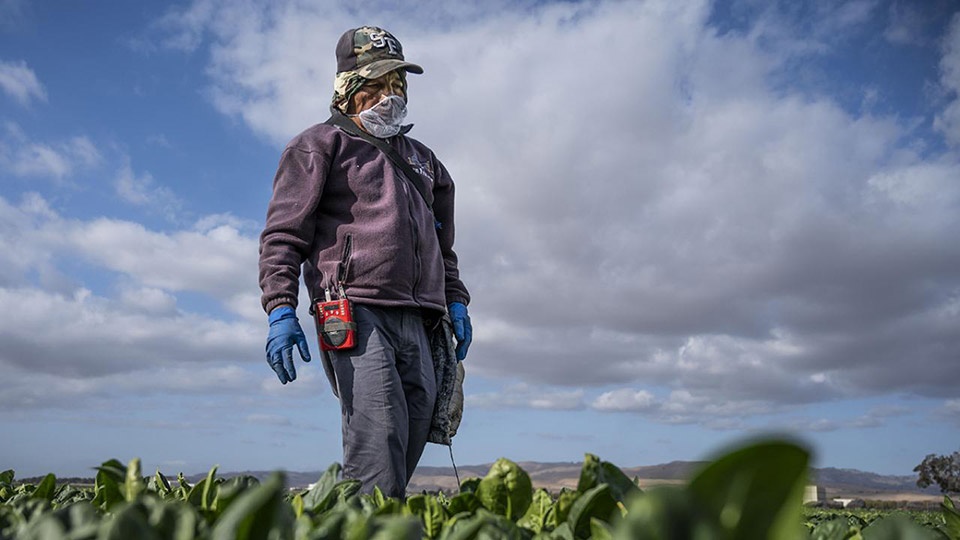
The first phase of the study, released this fall, shows that the pandemic has had a major impact on the work and lives of farmworkers, says Peter Hainley, executive director of Casa of Oregon. Farmworkers experienced a loss of work and income during the pandemic, and few workers have the means to isolate or quarantine if someone in their family is sick. "Cost and fear of losing a job are significant barriers to accessing testing and care," the study says.
"We estimate that we have 150,000 farmworkers and family members living in Oregon that are migrant and seasonal," Hainley says. "When you include year-round, that's up to 200,000 farmworkers and family members that work in agriculture, including processing."
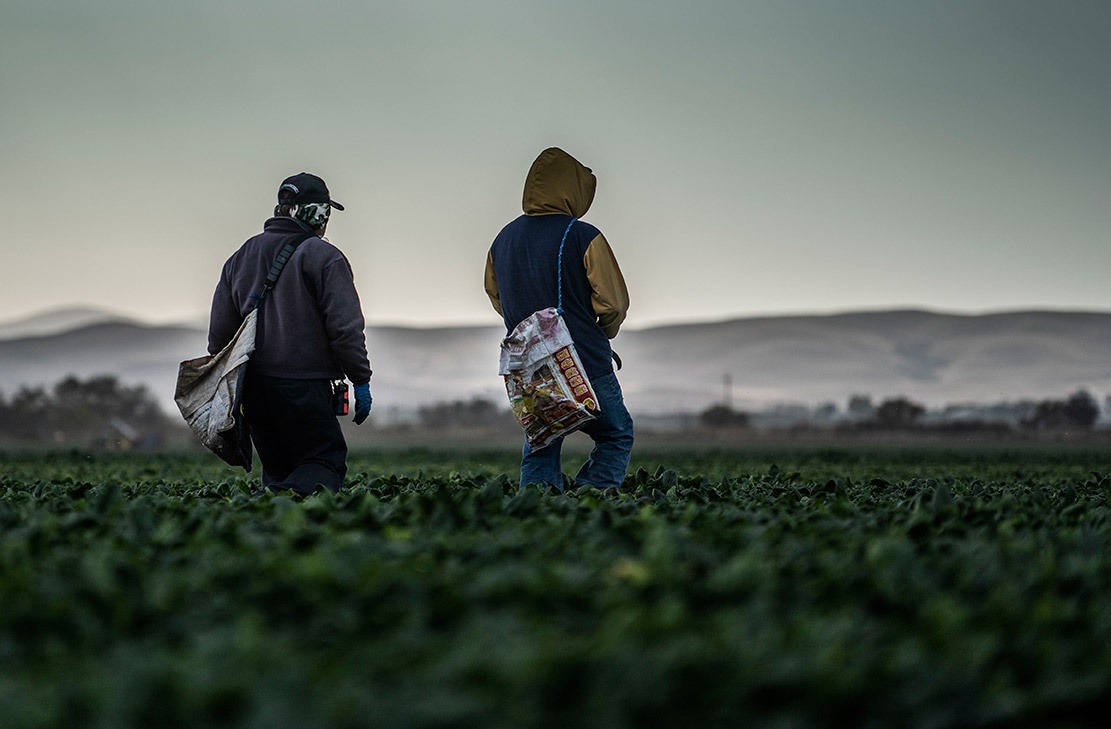
Casa of Oregon developed or helped rehabilitate housing that serves more than 5,000 farmworkers and their families in the state, but there's still a crunch. Wildfires exacerbated the situation, destroying housing, including a 36-unit farmworker apartment complex in Talent, Oregon, developed by Casa.
The study, with its statewide survey that gathers data directly from farmworkers during COVID, shows a population hit hard. That population is primarily comprised of Latino workers, Hainley says.
"The COVID studies dovetail with what we've always known has been going on out there," Hainley says. It shows that for childcare, families watch neighbors' children, something always a part of Latino culture but more difficult now, during COVID. It shows the need for sharing information on healthcare and economic assistance in more languages than English and Spanish.
"When you look at COVID workplace outbreaks a large number of them are agriculture, aquaculture and food processing facilities It makes it crystal clear that these have always been essential workers – now more essential than ever – and they're still not getting the protections that are needed in the workplace," Hainley says. "When you look at where the outbreaks have occurred, inevitably it's a potato processing plant or a seafood processing plant. It's been that way consistently since the pandemic started."
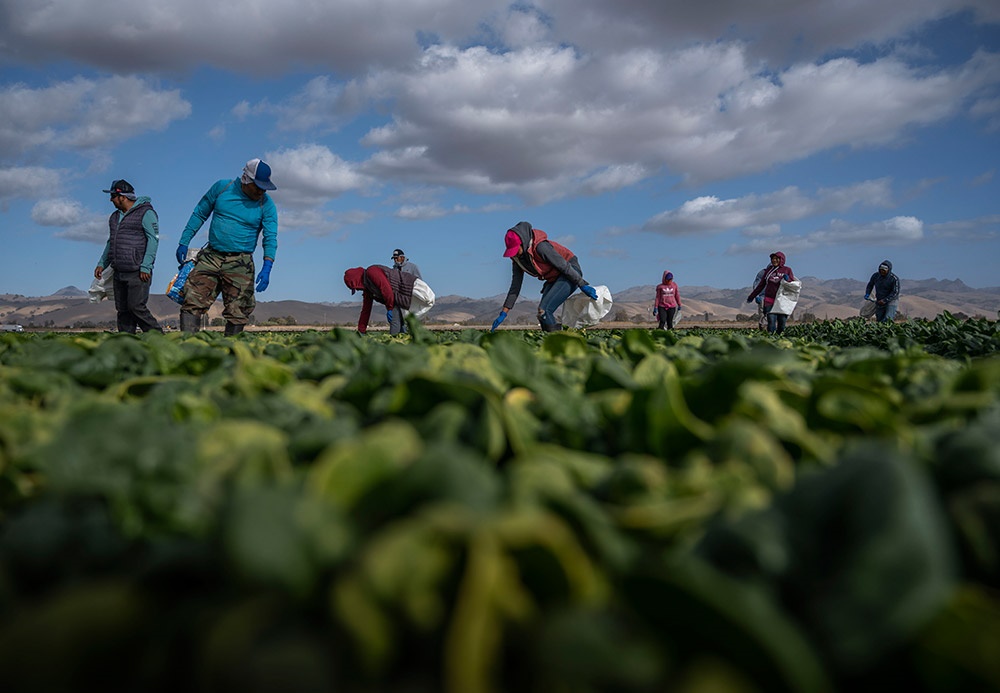
The study, conducted with three Oregon universities, surveyed 300 farmworkers who shared what they've been going through in Oregon, with COVID, with tight living conditions, and with fires that destroyed their housing, says Jennifer Martinez, the Portland State University doctoral student leading the first phase of the study. "COVID is impacting folks so much," she says. "These findings are so important and so necessary."
Farmworkers are always one crisis away from a major setback, Martinez says. But this year, they endured two crises at once. Martinez says she wasn't surprised by the survey results, which showed farmworkers undergoing increasing stress and few reports of COVID testing, due to cost and accessibility. "But to the general public, they may not know what workers are going through. Agriculture is changing amid COVID."
Farmworkers have seen their jobs become more unstable and more temporary, she says. "Nursery workers who have been at the same nursery for years have had to find other work. A lot of women who were farmworkers had to lose hours and stay home with children who were home from school." Meanwhile, children have had to take on greater responsibilities, caring for siblings and helping with school.
And while some farm managers are doing a great job with the restrictions and making sure farmworkers stay safe, others are not. "Our survey is showing that 34% of farmworkers know someone in the workplace who got sick with COVID. It's bigger than we realized."
To conduct the survey, the universities relied on community service organizations to make sure workers were comfortable explaining life at their workplaces. Many are fearful to seek help, she says, even from organizations who offer relief funds. "This is a call to the community," she says.
"Farmworkers put food on all our tables," Martinez says. "They're out there during wildfires, during the pandemic picking our food and making sure we're healthy. They're connected to all of us."
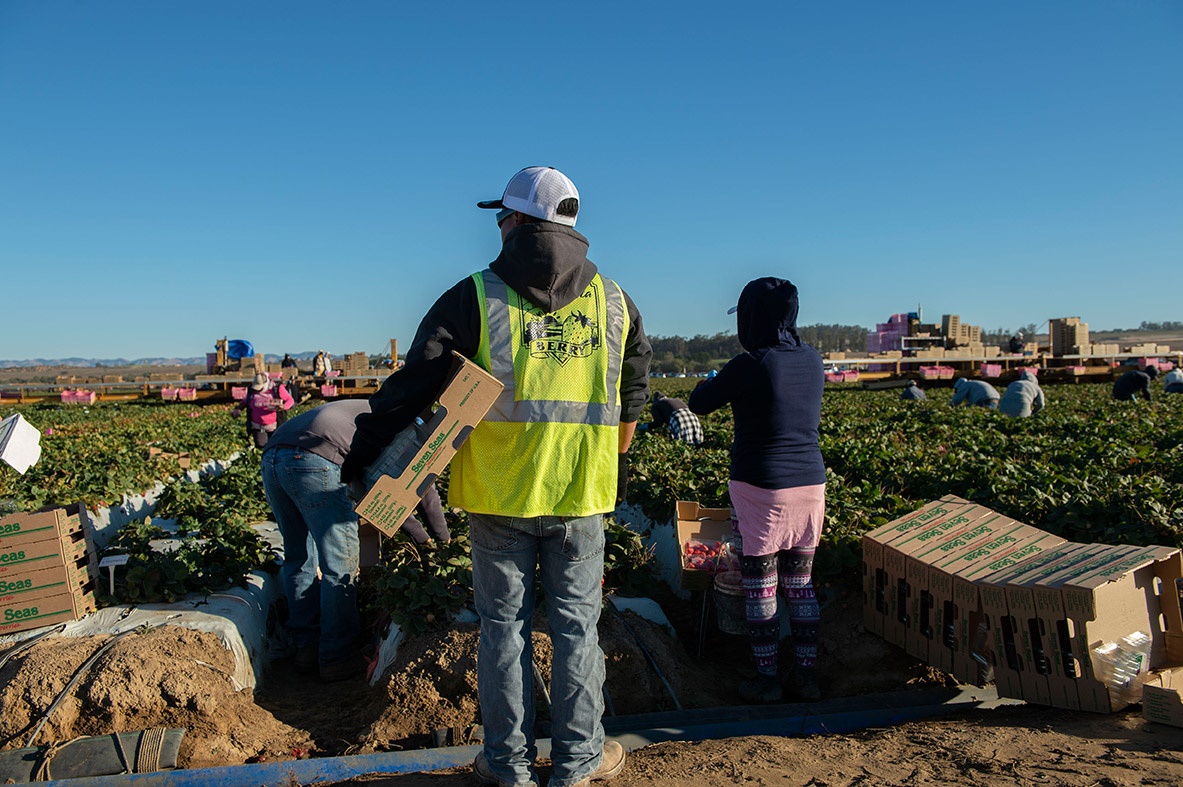
A second phase of the study, which will begin in January, will delve deeper into obstacles facing farmworkers, and the results will help guide Casa of Oregon's suggestions for policies that will assist farmworkers. The study "is outside the work we typically do," Hainley says. But it helps the organization tell and share the farmworkers' story with statistical sampling and academic rigor "that is not found in many of the housing needs assessments we complete. This partnership with the academic sector is really important in that it gives us a new way to assess the impacts on our most essential workers. This new type of partnership we've formed is really important."
The second phase, beginning in January, will focus on a communities that have been most impacted by COVID, likely one on the coast, centered around the aquaculture industry, one in Eastern Oregon, where there are processing facilities, and one in Southern Oregon, where the wildfires took place. "We're taking a deeper dive," Hainley says. He says COVID outbreaks in Southern Oregon appear to be related more to the wildfire situation than to workplace issues people have been in. A needs assessment in Southern Oregon will take place at the same time as the survey.
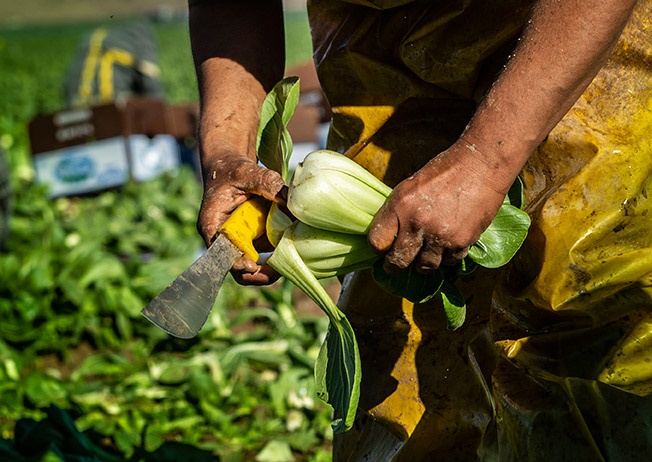
Andalon says physical stress can lead to mental stress. The lack of spaces to quarantine during COVID means that "if someone gets sick, the whole household gets sick. There is an additional need for housing stability and temporary shelter with appropriate quarantine options." Phase II will include additional research in the area of mental health for farmworkers, she says.
Hainley says suggestions for policy changes that could help workers include:
-Replenishing income and safety net support for farmworkers regardless of
documentation status, such as the Oregon Workers Relief Fund, COVID-19
Farmworker Rental Relief Fund, and expand qualifications for Oregon Worker
Quarantine Fund
-Expanding stock of housing opportunities that can serve farmworker families facing
housing insecurity and/or needing temporary quarantining shelter with adequate
social distancing
-Enforcing anti-retaliation and workplace protections that assure
farmworkers can take time off and/or can file employer complaints without fear of
retribution, such as supporting stronger Whistleblower protections and abolishing
farm labor collective bargaining restriction
-Providing compensation for farmworkers who were forced to take time-off work and/or relied on informal networks for caretaking/childcare responsibilities due the closure of childcare facilities and transition to virtual education since the start of COVID-19
"NeighborWorks grants that provide CASA with operating support is what helps us accomplish our mission," Hainley says. "Their support is crucial to our ability to develop farmworker housing."
Both Hainley and Martinez said they appreciate their new partnership. The benefits of the partnership will go not just to the organizations involved, but to the farmworkers.

